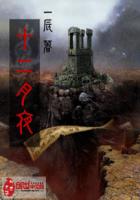We could not see the fire now, because of the corner of the wood, but we hoped Alice was mistaken.
But when we got in sight of the scene of our pottering industry we saw it was as bad nearly as Alice's wild dream. For the wooden fence leading up to the bridge had caught fire, and it was burning like billy oh.
Oswald started to run; so did the others. As he ran he said to himself, 'This is no time to think about your clothes. Oswald, be bold!'
And he was.
Arrived at the site of the conflagration, he saw that caps or straw hats full of water, however quickly and perseveringly given, would never put the bridge out, and his eventful past life made him know exactly the sort of wigging you get for an accident like this.
So he said, '****y, soak your jacket and mine in the stream and chuck them along. Alice, stand clear, or your silly girl's clothes'll catch as sure as fate.'
****y and Oswald tore off their jackets, so did Denny, but we would not let him and H. O. wet theirs. Then the brave Oswald advanced warily to the end of the burning rails and put his wet jacket over the end bit, like a linseed poultice on the throat of a suffering invalid who has got bronchitis. The burning wood hissed and smouldered, and Oswald fell back, almost choked with the smoke.
But at once he caught up the other wet jacket and put it on another place, and of course it did the trick as he had known it would do.
But it was a long job, and the smoke in his eyes made the young hero obliged to let ****y and Denny take a turn as they had bothered to do from the first. At last all was safe; the devouring element was conquered. We covered up the beastly bonfire with clay to keep it from getting into mischief again, and then Alice said--'Now we must go and tell.'
'Of course,' Oswald said shortly. He had meant to tell all the time.
So we went to the farmer who has the Moat House Farm, and we went at once, because if you have any news like that to tell it only makes it worse if you wait about. When we had told him he said--'You little ---.' I shall not say what he said besides that, because I am sure he must have been sorry for it next Sunday when he went to church, if not before.
We did not take any notice of what he said, but just kept on saying how sorry we were; and he did not take our apology like a man, but only said he daresayed, just like a woman does. Then he went to look at his bridge, and we went in to our tea. The jackets were never quite the same again.
Really great explorers would never be discouraged by the daresaying of a farmer, still less by his calling them names he ought not to.
Albert's uncle was away so we got no double slating; and next day we started again to discover the source of the river of cataracts (or the region of mountain-like icebergs).
We set out, heavily provisioned with a large cake Daisy and Dora had made themselves, and six bottles of ginger-beer. I think real explorers most likely have their ginger-beer in something lighter to carry than stone bottles. Perhaps they have it by the cask, which would come cheaper; and you could make the girls carry it on their back, like in pictures of the daughters of regiments.
We passed the scene of the devouring conflagration, and the thought of the fire made us so thirsty we decided to drink the ginger-beer and leave the bottles in a place of concealment. Then we went on, determined to reach our destination, Tropic or Polar, that day.
Denny and H. O. wanted to stop and try to make a fashionable watering-place at that part where the stream spreads out like a small-sized sea, but Noel said, 'No.' We did not like fashionableness.
'YOU ought to, at any rate,' Denny said. 'A Mr Collins wrote an Ode to the Fashions, and he was a great poet.'
'The poet Milton wrote a long book about Satan,' Noel said, 'but I'm not bound to like HIM.' I think it was smart of Noel.
'People aren't obliged to like everything they write about even, let alone read,' Alice said. 'Look at "Ruin seize thee, ruthless king!" and all the pieces of poetry about war, and tyrants, and slaughtered saints--and the one you made yourself about the black beetle, Noel.'
By this time we had got by the pondy place and the danger of delay was past; but the others went on talking about poetry for quite a field and a half, as we walked along by the banks of the stream.
The stream was broad and shallow at this part, and you could see the stones and gravel at the bottom, and millions of baby fishes, and a sort of skating-spiders walking about on the top of the water. Denny said the water must be ice for them to be able to walk on it, and this showed we were getting near the North Pole.
But Oswald had seen a kingfisher by the wood, and he said it was an ibis, so this was even.
When Oswald had had as much poetry as he could bear he said, 'Let's be beavers and make a dam.' And everybody was so hot they agreed joyously, and soon our clothes were tucked up as far as they could go and our legs looked green through the water, though they were pink out of it.
Making a dam is jolly good fun, though laborious, as books about beavers take care to let you know.
****y said it must be Canada if we were beavers, and so it was on the way to the Polar system, but Oswald pointed to his heated brow, and ****y owned it was warm for Polar regions. He had brought the ice-axe (it is called the wood chopper sometimes), and Oswald, ever ready and able to command, set him and Denny to cut turfs from the bank while we heaped stones across the stream. It was clayey here, or of course dam ****** would have been vain, even for the best-trained beaver.

